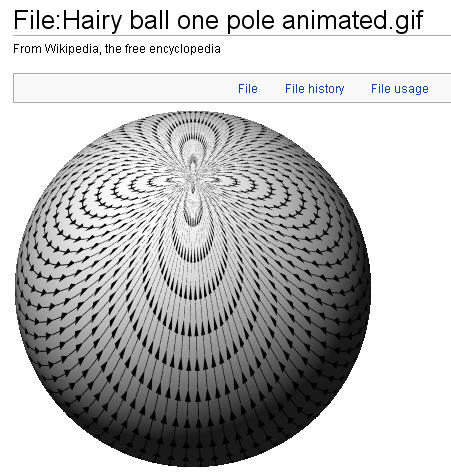CS 284: CAGD
Lecture #21 -- Thu 11/01, 2012.
PREVIOUS
< - - - - > CS
284 HOME < - - - - > CURRENT
< - - - - > NEXT
Preparation: Study:
Texture Synthesis over Arbitrary Manifold Surfaces
Warm-Up: Answer some key questions
about today's paper
Soham leads the discussion on:
Texture Synthesis over Arbitrary Manifold Surfaces
- What is the key problem that prevents the application of
Wei and Levoy's original texture synthesis scheme
to be applied to a smooth object of arbitrary genus ?
- What are the key advantages of the new scheme ?
-
What are the key differences between the way that Wei and
Levoy put texture onto a surface
and the way that you tried to do it on your mug ?
- How would you choose texture directions on you mug if you
had a 2-way directional texture ?
- How do Wei and Levoy define a "vertex
neighborhood" ?
- How does the "Image Pyramid" work ?
Follow-up: There is a way of combing
a sphere with only a single point singularity!

Assignments for Tue. Nov. 6, 2012:
Study: DF'00:
Adaptively Sampled Distance Fields
and then try to answer the following four questions, sending
me e-mail before 5pm on Monday, Nov. 5, 2012.
1.) In the top-down approach for creating
subdivided ADF cells, what are the exact tests performed ?
2.) How is the gradient of the distance field computed ?
3.) In comparing the number of elements in Figures 4b and 4d,
are the authors doing a fair comparison ?
How might they be making the ADF
approach look particularly good in this example ?
4.) Name a couple of application domains that profit from the
ADF approach of shape representation.
PREVIOUS
< - - - - > CS
284 HOME < - - - - > CURRENT
< - - - - > NEXT
Page Editor: Carlo
H. Séquin
